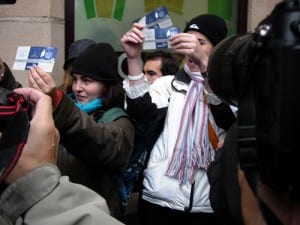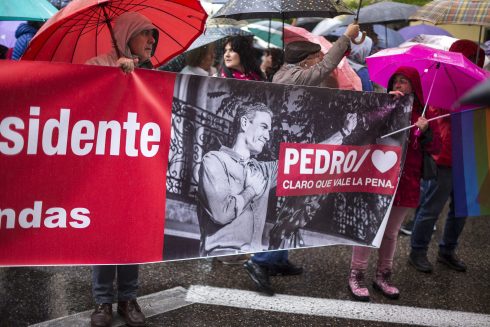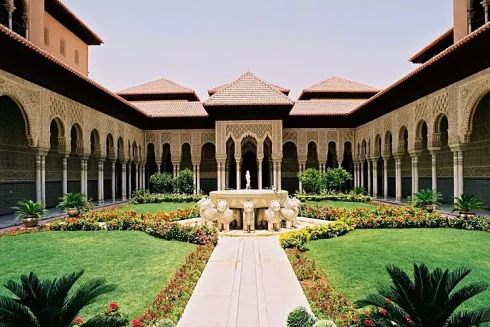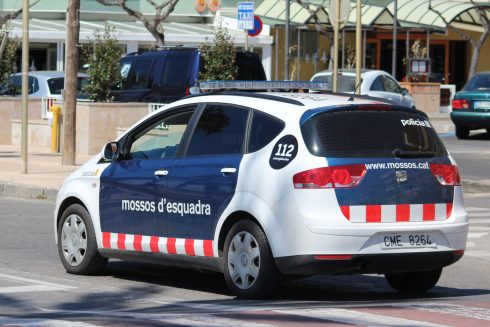
EVERY year, there’s always excitement in the air as Christmas approaches, especially if you have young children in the family to share the magic of it all.
But for anyone living in Spain, you’ll know that there’s another great tradition that takes place just before Christmas and that generates fever-pitch excitement for anyone who takes part in it. Of course, we’re talking about El Gordo, the nickname for one of the world’s biggest lotteries – the Sorteo de Navidad.
Actually El Gordo doesn’t refer to the lottery, but to the jackpot prize of the lottery. Appropriately, El Gordo translates to “the fat one” and the jackpot is always huge. Last year the prize pool amounted to £2.1 billion, and there was a 1 in 100,000 chance of winning the top prize. At this time of year it may seem far too early to be thinking about Christmas, but tickets for El Gordo actually do go on sale from July every year, so it’s about now that you should be deciding on how much you want to spend on what could turn out to be a massive Christmas bonus.
Of course, El Gordo only takes place once a year. And for anyone who enjoys the buzz of games of chances like the lottery and wants the fun of playing on a more regular basis, then there’s a plethora of choice online. Online bingo sites provide the thrill of chance and of not knowing where any game will take you; you might not win, you may hit a small jackpot or you could land a significant amount of cash if you happen to have the right numbers. And sites such as Sun Bingo provide players with plenty of variety too – alongside bingo games, there are slots, casino table games and scratchcards which can be played at any time of day or night.
How the Sorteo de Navidad all started
First introduced in 1812, the Spanish Christmas lottery has always been popular. Previous lotteries had proven to be successful fundraisers for King Carlos III’s war chest during the Napoleonic War. This motivated the country’s legislative body Cortes de Cadiz to introduce the Sorteo de Navidad as a way of increasing state income.
To add to the extravaganza nature of the lottery draw, the organisers also came up with the unique idea of having boys from the San Ildefonso orphanage singing out the numbers as they were drawn. Today, the tradition continues and the drawing ceremony takes place at the Teatro Real de Madrid on 22 December and is broadcast live on “La 1”. One ball container has the winning numbers, while another container holds the balls with the associated prize values. As there are thousands of prize tiers, the draw takes over three hours and the San Ildefonso school children now work in shifts to sing the numbers on the big night. It’s compulsive viewing and many Spanish families hold El Gordo parties to watch the proceedings together.
It’s a family affair
The thing that makes the Sorteo De Navidad stand out from many other lotteries is that many approach it from a communal standpoint. Each ticket or billete has a unique 5-digit number created from the numbers 0-9 and 160 series of each combination is printed. There is a finite number of tickets available, which isn’t the case with most other lotteries.
As a whole ticket is quite expensive – costing €200 – to make it more affordable, many community organisations and workplaces buy tickets and then offer shares or participations in the ticket value – the usual arrangement is to buy a tenth (décimo) or a number of tenths from an organisation that you have a relationship with.
Often, family members or work colleagues will buy into the same syndicate, and have the pleasure of knowing that if they win, a lot of their friends or relatives will also win. There’s a sense of sharing the luck. Due to the size of the jackpot, the fortunes of whole villages have been turned around thanks to a win of El Gordo.
The most famous recent example was when the entire town of Grañén hit the jackpot in 2011. Only one resident missed out; Greek filmmaker Costas Mitsotakis, whose house was missed out when the Housewife’s Association of Sodeto (a neighbouring village) made the rounds to sell participations in their tickets. However, even Costas turned his experience into something positive by making a documentary film about the town’s win.
Taking part in El Gordo is a no-brainer – not only will you be participating in one of the great Spanish traditions, but you may also land yourself a small fortune in the process!












Why on earth is this article being published today, in the middle of May? Is there no other news that you can find to report? “Small earthquake in Chile, not many dead.”?